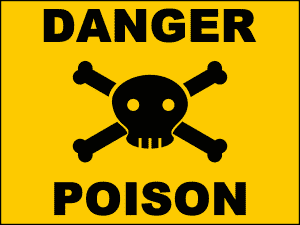
Camp Lejeune Toxic Water Lawsuit
- 1. Many people developed severe illnesses or had family members who got sick and died.
- 2. Evidence indicates that many toxic substances polluted the Camp Lejeune Water
- 3. What kind of evidence was documented in that early 1997 toxic water study?
- 4. Illnesses now linked to the toxic/contaminated Camp LeJeune water
- 5. Basic eligibility to recover based on the past Camp LeJeune toxic water situation
Between 1953 and 1987, as many as one million Americans were exposed to contaminated or toxic water while they worked or lived at the Marine Corp Base Camp LeJeune in North Carolina. Fortunately, new 2022 legislation allows those harmed to seek financial damage awards in federal court. As explained in greater detail below, many of these victims developed serious health conditions or died due to this exposure.
If you or a loved one suffered this type of harm during the years referenced above, it’s important to contact our Camp LeJeune toxic water exposure law firm immediately.
Contact our team at (212) 222-1111 for your free case evaluation.
Many people developed severe illnesses or had family members who got sick and died.
One of the most disturbing cases occurred during an interview with a Roll Call reporter. A woman named Catherine Daniels said that three of her babies died while she and her Marine husband lived at Camp LeJeune. She is now concerned that all three children may have died due to the many toxic chemicals in the water that was regularly used for drinking and bathing purposes. It has also been asserted that many men wound up developing breast cancer.
The precise toxic chemicals that poisoned the water are set forth and briefly discussed below, along with the painful and sometimes fatal medical conditions they caused. All this material should help you decide if you need to immediately call our Camp LeJeune toxic water attorneys so we can help you evaluate your case. Our firm’s experience with handling past claims involving carcinogens (cancer-causing substances), toxic drugs, and harmful medical devices allows us to craft strong cases on behalf of each client carefully.
Evidence indicates that many toxic substances polluted the Camp Lejeune Water
Before the passage of the recent 2022 legislation that allows Camp LeJeune lawsuits to proceed, the following facts about the water contamination had already been shared.
- The cleaning solvents PCE and TCE were released into the water
- Battery acid and lead leaked into the base’s water
- Many other untracked substances were also likely dumped or released into the Camp LeJeune water
Sadly, our federal government failed to properly track the safety of water and other core supplies provided on military bases during past decades. No one government entity was recording how much military waste was being dumped on military bases long ago. Furthermore, a strong argument can be made that the Navy engineers who designed the Camp LeJeune base should have anticipated that the shallow water aquifer they presumed could meet the base’s needs would likely become polluted.
Regrettably, it was not until 1985 that the toxicity of the Camp LeJeune water was officially detected. Yet proper remedial actions did not immediately occur. In fact, four more years would pass before the poisoned wells were shut down after being designated as hazardous waste. While the legislation passed by Congress back in 2012 helped some harmed by the Camp LeJeune toxic water situation, too many others were left without a remedy. Only the persistence of a few kept this matter alive, including the father of a daughter who died due to an illness caused by the toxic water documented in that 1997 CDC study.
Jerry Ensminger, a Marine drill instructor, was the father of the nine-year-old little girl who died after developing leukemia. She had been conceived at Camp LeJeune.
The heavy opposition to this crucial legislation designed to benefit hardworking veterans speaks volumes about the serious difficulties of passing all healthcare-related statutes.
Fortunately, the PACT Act was finally sent for President Joe Biden’s signature on August 10, 2022. The White House news release concerning this legislation fully captures its immense significance. It notes that the documentation required to prove at least 23 specifically named conditions has been greatly simplified.
What kind of evidence was documented in that early 1997 toxic water study?
During that year, the Agency for Toxic Substances and Disease Registry (ATSDR) released a “health assessment notice” concerning two Camp LeJeune treatment plants. It noted that they were rife with contamination. The Tarawa Terrace Water Treatment Plant was said to be mainly contaminated with PCE (perchloroethylene — also known as tetrachloroethylene). This substance was traced to a dry-cleaning facility off the base. The study indicated that PCE is also used to degrease metal equipment or objects.
The other facility – known as the Hadnot Point Water Treatment Plant – was mainly contaminated by TCE (trichloroethylene). Additional toxic elements found there included benzene, vinyl chloride, and other substances. The fact that there were storage tanks underground that were leaking did not help matters. While some have stated that most of these chemicals were without odor – it is highly unlikely that multiple, high-ranking officials never thought to the likely presence of harmful chemicals in the water.
Later, Department of Defense actions taken to try and avoid addressing the Camp LeJeune water toxicity fail to demonstrate an adequate level of concern for all who had lived and worked on the base over the many decades. This holds particularly true for the years right after the 1997 study
was published – when public members learned about the problem from a CBS news report.
Illnesses now linked to the toxic/contaminated Camp LeJeune water
- Myelodysplastic syndrome. This rarely addressed condition involves poorly formed and
malfunctioning blood cells.
- Leukemia (every type). There are four main types of this disease
- Hepatic steatosis Some patients and doctors refer to this as “fatty liver disease.”
- Non-Hodgkin’s lymphoma
- Breast cancer
- Parkinson’s disease
- Kidney cancer
- Lung cancer
- Multiple myeloma
- Bladder cancer
- Brain cancer
- Esophageal cancer
- Miscarriages or serious infant birth defects (all or most of the latter must have been discovered in utero)
- Female infertility
- ALS (Amyotrophic Lateral Sclerosis)
- Various neurobehavioral effects
- Other unusual, serious health conditions that might require medical monitoring
Current legislation allowing for Camp LeJeune toxic water recovery lawsuits
In June 2022, Congress passed the Camp LeJeune Justice Act of 2021. This legislation was part of what is known as the PACT Act. This acronym references a Promise to Address Comprehensive Toxics. (The full, much longer name is referenced at the provided link. This statute is further discussed in an excellent National Law Review article).
Brief background history regarding North Carolina’s Camp LeJeune

Troops that trained here have fought in such countries as Vietnam, the Pacific Islands, Kuwait, Afghanistan, Korea, and Iraq. The shoreline location has been perfect for teaching various crucial marine skills. Graduates of Camp LeJeune programs continue to be sent on both humanitarian and combat missions around the world. The government makes excellent use of the base’s 156,000 acres and eleven (11) miles of beach property. When financial figures were last updated, this base was said to still be generating about $3 billion annually.
Basic eligibility to recover based on the past Camp LeJeune toxic water situation
- Must be able to prove that you lived on the base or worked there for at least 30 days between the years of 1953 and 1987
- You or a family member developed cancer or other serious health conditions that could have been caused by your exposure to the toxic water then provided on the base. You can also provide documentation of a qualifying death caused by this situation.
Other specific legal filing issues tied to choosing the proper federal court can all be handled by our Camp LeJeune toxic water lawsuit attorneys.
If you or a close family member (who lived with you at Camp LeJeune during the years noted above), developed any of the conditions listed, you need to contact our Camp LeJeune toxic water contamination law firm. We will carefully investigate all the facts of your case, review all your medical records, and then fight hard to win the maximum compensation available to you. We want every client to fully recover from all losses caused by these toxic water-related diseases.
Fill out the form below & we will contact you as soon as possible.
We can tell you if you have a case or not within five minutes, Call (866) 288-9529
FREE CONSULTATION · NO FEE PROMISE · OVER $900 MILLION RECOVERED



